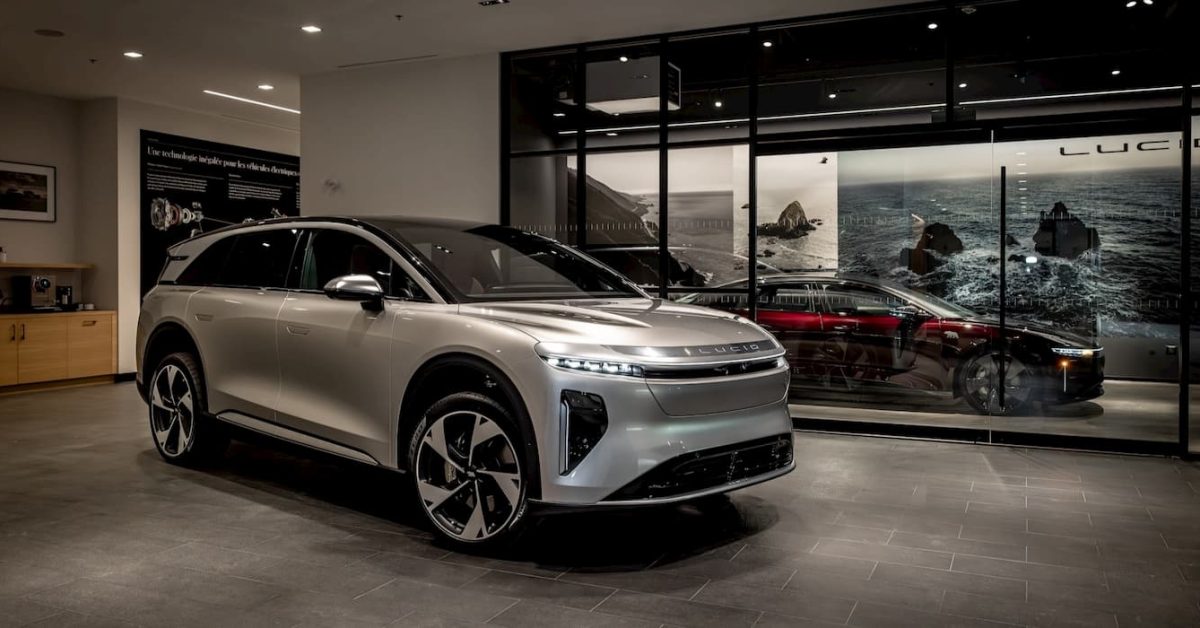- Joined
- Mar 7, 2020
- Messages
- 6,842
- Reaction score
- 9,621
- Location
- Naples, FL
- Cars
- Model S Plaid, Odyssey
- Air DE Number
- 154
- Referral Code
- 033M4EXG
In our almost daily series of discussions about the EV industry, today my brother and I were rehashing the (usually sad) fates of EV startups in the U.S. and the reasons for their varying trajectories: Tesla, Rivian, Lordstown, Telo, Aptera, Faraday Future, Canoo, Fisker, Bollinger, Arcimoto, Mullen, et al.
In the course of this discussion, it began to dawn on me just how bold and comprehensive the scope of Lucid's ambition was in entering the EV arena. From nothing more than a small enterprise that developed battery packs for EV applications, they took on probably more challenges simultaneously than any other startup. Before selling the first car, they designed and built a factory from the ground up. They engineered the most power-dense motor in the industry. They engineered the highest-voltage battery pack in the industry. They engineered the most efficient drivetrain and power electronics in the industry. They set new aerodynamics records. They broke new ground with component miniaturization and space packaging. They even developed the most advanced lighting system in the business.
Compare this to Tesla, whose first four years of car production were based on a Lotus Elise platform and a powertrain developed with the assistance of Lotus Advanced Engineering. Or with Rivian, which converted an existing automobile factory to begin production and initially sourced key components such as motors. Even today, with Air sales lagging behind hopes and expectations, Lucid has just completed a four-fold expansion of its production footprint in Arizona plus opened a large factory in Saudi Arabia. It has vehicles two generations out well into development. It continues to open new salesrooms and service centers.
What is the source of this determined ambition? Deep commitment to purpose? Certainty of ability to succeed? The confidence born of having assembled one of the best teams of talent in the automotive industry? Willful blindness to reality? Private guarantees of long-term financial backing to soldier through the harrowing start-up period of brand building?
Call it what you will. I just think the constant hand-wringing about Lucid financials obscures the recognition of the absolutely amazing things Lucid has already pulled off and -- if the early reception of the Gravity is any indication -- will continue to pull off as its starts to move into larger market segments than luxury sedans.
In the course of this discussion, it began to dawn on me just how bold and comprehensive the scope of Lucid's ambition was in entering the EV arena. From nothing more than a small enterprise that developed battery packs for EV applications, they took on probably more challenges simultaneously than any other startup. Before selling the first car, they designed and built a factory from the ground up. They engineered the most power-dense motor in the industry. They engineered the highest-voltage battery pack in the industry. They engineered the most efficient drivetrain and power electronics in the industry. They set new aerodynamics records. They broke new ground with component miniaturization and space packaging. They even developed the most advanced lighting system in the business.
Compare this to Tesla, whose first four years of car production were based on a Lotus Elise platform and a powertrain developed with the assistance of Lotus Advanced Engineering. Or with Rivian, which converted an existing automobile factory to begin production and initially sourced key components such as motors. Even today, with Air sales lagging behind hopes and expectations, Lucid has just completed a four-fold expansion of its production footprint in Arizona plus opened a large factory in Saudi Arabia. It has vehicles two generations out well into development. It continues to open new salesrooms and service centers.
What is the source of this determined ambition? Deep commitment to purpose? Certainty of ability to succeed? The confidence born of having assembled one of the best teams of talent in the automotive industry? Willful blindness to reality? Private guarantees of long-term financial backing to soldier through the harrowing start-up period of brand building?
Call it what you will. I just think the constant hand-wringing about Lucid financials obscures the recognition of the absolutely amazing things Lucid has already pulled off and -- if the early reception of the Gravity is any indication -- will continue to pull off as its starts to move into larger market segments than luxury sedans.


